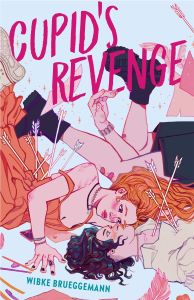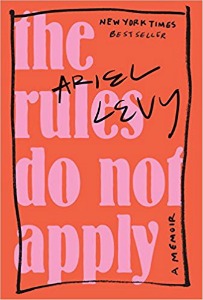
Buy this from Bookshop.org to support local bookstores and the Lesbrary!
Recently translated into English, Marina Yuszczuk’s queer vampire novel, Thirst (Dutton, March 5, 2024), is partly what I’d hoped for in a vampire fiction, and at the same time, it was nothing like what I’d expected.
Although it’s a Gothic, vampire novel on the surface, Thirst is really a feminist novel about two women’s experiences of life, loss, trauma, and haunting across centuries. Taking place over two different time periods in Buenos Aires, what seem at first like the totally disparate narratives of two women who live in entirely different circumstances eventually come together in a dramatic and bittersweet conclusion. In nineteenth-century Buenos Aires, a vampire arrives on a ship from Europe, fleeing the death and violence she and her sisters found there. She is less a Dracula-like figure arriving at Whitby on the deserted Demeter, and more of a lost scavenger, uninterested in human lives even as she grieves her own losses.
As the world transforms around her—moving from isolated villages into cosmopolitan, interconnected cities, the vampire must adapt her existence in order to intermingle. In the same city in the present day, a seemingly ordinary woman struggles to cope with the terminal illness of her own mother while also looking after her young son. When she sees the vampire for the first time in a Buenos Aires cemetery at the opening of the novel, the two women are set on a collision course that promises both revelation and destruction.
This novel is marketed for fans of Mary Shelley’s Frankenstein (1818), and I can definitely see the parallels. This is a conflicted, confused, and introspective monster novel with just enough of a dash of broken moral compass to make this interesting. Thirst is also compared to the writing of Daphne du Maurier and Carmen Maria Machado, which is something I understand a bit less—to me, Thirst is unique in its style, and it’s a fascinating take on the vampire story.
For me, much of my enjoyment of this novel came in the first half. The first chapter had me completely hooked and I loved reading about the vampire’s origin story. Dark, gory, and dramatic, the image of the nineteenth-century queer female vampire wreaking havoc on Buenos Aires society amidst an abundance of crime and death was gripping. I couldn’t look away!
The second half, which focuses much more on present-day Buenos Aires, was less exciting for me, although I loved the relationship between the two women. It felt at times in the second half like this was a feminist novel with a Gothic overlay, and that the vampire plot was secondary to the narration of these women’s lives. This disrupted my expectations and made me enjoy the novel a bit less, although I may have been more engaged had I understood from the beginning that this was more of a novel about the way women see the world.
Thirst is absolutely worth reading if you’re looking for a new and exciting feminist Latin American author, or if you’re a fan of queer vampire stories and historical fiction. I think it’s an interesting addition to the canon, and I would love to read more by this author.
Please add Thirst to your TBR on Goodreads.
Rachel Friars is a writer and academic living in Canada, dividing her time between Ontario and New Brunswick. When she’s not writing short fiction, she’s reading every lesbian novel she can find. Rachel holds two degrees in English literature and is currently pursuing a PhD in nineteenth-century lesbian literature and history.
You can find Rachel on Twitter @RachelMFriars or on Goodreads @Rachel Friars.


